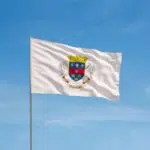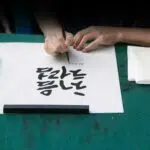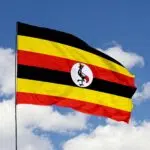South Korea Hangul Day, also known as Korean Alphabet Day, is observed annually on October 9. It’s a national holiday to commemorate the invention and proclamation of the Korean alphabet, known as Hangul (or Hangeul). It’s also celebrated in North Korea on January 15 as ‘Chosun-gul’ Day. Before the invention of Hangul, Koreans wrote using Classical Chinese with native phonetic writing systems. Hangul Day has been a national holiday since 1970, except for the years 1991 until 2012. We observe the day to commemorate King Sejong’s achievement and the promulgation of the ‘Hunminjeongeum,’ a document describing an entirely new script for the Korean language, which was later known as Hangul.
History of South Korea Hangul Day
Since its first inception in 1926, the date of Hangul Day has varied. In 1945, the South Korean government declared October 9 as Hangul Day, an annual legal holiday, and since October 9, 1970, Hangul Day has been an annual national holiday in South Korea. However, between 1991 and 2012, Hangul Day’s status as a holiday was canceled due to the South Korean government being pressured by major employers to increase the country’s annual number of workdays. As a result, the day remained as a commemoration but workers didn’t get the day off. On November 1, 2012, its status as a national day was restored.
Before Hangul was invented, Koreans used Chinese characters to write with native phonetic writing systems. In addition to a large number of characters to be learned, the grammatical differences between Korean and Chinese languages also became difficult for Koreans to write using Chinese characters. As a result, only those who had the privilege of education were literate. Therefore, King Sejong decided to create the Korean alphabet to promote literacy among all Koreans, and he proclaimed the publication of Hangul in 1446.
Despite all the benefits of Hangul, it almost went out of existence during the Choson dynasty. At the time, the elites who desired to preserve their status saw that Chinese characters were the only true way to write Korean. Hangul was then effectively banned by King Yeonsangun in the early 16th Century but then saw a revival towards the end of the century. It then had a resurgence in the 19th Century, and gradually grew more common, especially due to its role in Korean nationalism during the era of the Japanese occupation. In the 1970s, there was a decline in the use of Chinese characters, paving the way for the prevalent utilization of Hangul in almost all Korean writings today.
South Korea Hangul Day timeline
Hangul is adopted and used in the writing of official documents.
Although the official language of Korea becomes Japanese during the Colonial Rule, Hangul is still taught in Korean-established schools.
Hangul is banned in schools as part of Japanese cultural assimilation.
All publications written in Hangul are outlawed.
Hangul is reinstated in Korea’s writing system following Korea’s independence from Japan’s colonial rule.
South Korea Hangul Day FAQs
Is learning Korean hard?
Korean might be ranked as one of the more difficult languages to learn by the Foreign Service Institute (FSI), but it’s still very much possible to learn as a non-native speaker.
Is Korean read left to right?
In today’s Korea, the majority of Korean is written horizontally, to be read from left to right.
Is Hangul scientific?
The Korean writing system, the Hangul, is considered to be the most scientific phonetic alphabet system. This is because its characters are based on the shapes of the parts of the human body that are used to enunciate the sound of those characters.
How to Observe South Korea Hangul Day
Visit the museum of King Sejong
It’s fitting to visit the museum of King Sejong to celebrate Hangul Day. He was the one who invented the Korean alphabet. You can see exhibits explaining the creation of Hangul inside the museum. His reign is often seen as a golden period in Korean history.
Learn the alphabet
The best thing to do to celebrate Hangul Day is to learn Hangul itself. If you are a non-Korean but interested in Korean culture, you may want to learn its alphabet. Hangul Day is the best time to do so!
Raise the national flag
A simple way to honor Hangul Day is to raise the Korean national flag. It can represent the pride of the country — the Korean alphabet.
5 Interesting Facts About The Korean Language
It’s a language isolate
It is said that Korean is commonly classified as a language isolate, meaning that it shows no significant link to any other existing languages.
‘Seoul’ means capital city
Seoul, the capital city of South Korea, literally means ‘capital city’ in Korean.
Verbs come last in the Korean sentences
Korean is a subject-object-verb (SOV) language.
It’s different in North and South Korea
The North and South Korean languages have distinct pronunciations, vocabularies, and even grammatical rules.
It’s ‘our’ instead of ‘my’
In the Korean language, the speakers use ‘our’ or ‘we’ instead of ‘my’ or ‘me.’
Why South Korea Hangul Day is Important
To commemorate
Hangul Day is observed to commemorate the invention and proclamation of the Korean alphabet. Besides, it’s celebrated in honor of King Sejong as the creator of Hangul.
A holiday to learn
Hangul Day can be observed by learning the Hangul itself. It’s the best time for those who are interested in learning about the Korean language and its alphabet.
To celebrate where we come from
Language is said to be a fundamental aspect of cultural identity. Celebrating Hangul Day can mean taking pride in one’s national identity.
South Korea Hangul Day dates
| Year | Date | Day |
|---|---|---|
| 2025 | October 9 | Thursday |
| 2026 | October 9 | Friday |
| 2027 | October 9 | Saturday |
| 2028 | October 9 | Monday |
| 2029 | October 9 | Tuesday |
















